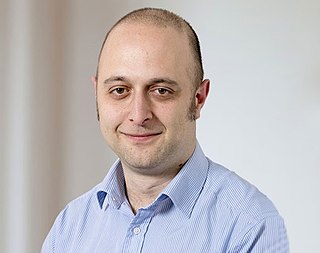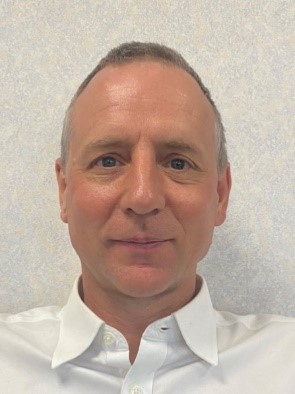
Mary Howarth Arden, Baroness Mance,, PC, known professionally as Lady Arden of Heswall, is a former Justice of the Supreme Court of the United Kingdom. Before that, she was a judge of the Court of Appeal of England and Wales.

The Privacy Act 1988 is an Australian law dealing with privacy. Section 14 of the Act stipulates a number of privacy rights known as the Australian Privacy Principles (APPs). These principles apply to Australian Government and Australian Capital Territory agencies or private sector organizations contracted to these governments, organizations and small businesses who provide a health service, as well as to private organizations with an annual turnover exceeding AUD$3M. The principles govern when and how personal information can be collected by these entities. Information can only be collected if it is relevant to the agencies' functions. Upon this collection, that law mandates that Australians have the right to know why information about them is being acquired and who will see the information. Those in charge of storing the information have obligations to ensure such information is neither lost nor exploited. An Australian will also have the right to access the information unless this is specifically prohibited by law.
The British and Irish Legal Information Institute provides legal information, and especially reports of cases decided by courts, in the United Kingdom generally and the Republic of Ireland. Decisions from England and Wales, the Republic of Ireland, Northern Ireland, Scotland, the European Union, and from the European Court of Human Rights, are put online. It is a partial online database of British and Irish legislation, case law, law reform reports, treaties and some legal scholarship.

Doughty Street Chambers is a British set of barristers' chambers situated in Bristol, Manchester and London's Doughty Street, undertaking criminal justice, public law, immigration, employment, human rights and civil liberties work.

Sir Stephen John Sedley is a British lawyer. He worked as a judge of the Court of Appeal of England and Wales from 1999 to 2011 and was a visiting professor at the University of Oxford from 2011 to 2015.

Rock Nominees Ltd v RCO (Holdings) plc[2004] EWCA Civ 118 is a UK company law case dealing with unfair prejudice under section 459 Companies Act 1985. It was decided at first instance by Peter Smith J.
Bristows is a full-service commercial, law firm, particularly known for its technology and intellectual property work.
Language analysis for the determination of origin (LADO) is an instrument used in asylum cases to determine the national or ethnic origin of the asylum seeker, through an evaluation of their language profile. To this end, an interview with the asylum seeker is recorded and analysed. The analysis consists of an examination of the dialectologically relevant features in the speech of the asylum seeker. LADO is considered a type of speaker identification by forensic linguists. LADO analyses are usually made at the request of government immigration/asylum bureaux attempting to verify asylum claims, but may also be performed as part of the appeals process for claims which have been denied; they have frequently been the subject of appeals and litigation in several countries, e.g. Australia, the Netherlands and the UK.
Grant v Edwards was an English Court of Appeal case on common intention constructive trusts.
Judge Eugene Cotran was a circuit judge in England and one of the main jurists in charge of the drafting of a Basic Law of Palestine.
R&B Customs Brokers Co. Ltd. v. United Dominions Trust Ltd. [1987] EWCA Civ 3 is an English contract law case, concerning unfair terms under the Unfair Contract Terms Act 1977.
Edmonds v Lawson [2000] EWCA Civ 69 is a UK labour law case regarding the National Minimum Wage Act 1998 and who is/is not included; it also considered whether a pupil barrister provides consideration to his/her master and/or chambers and whether that relationship demonstrated adequate intention. It held that pupil barristers are not included as either "apprentices" or "workers" for the purposes of the Act but they do provide adequate consideration and intention to found a contract with their chambers.

Sir Rabinder Singh, PC, styled The Rt. Hon. Lord Justice Singh, is a British Court of Appeal judge and President of the Investigatory Powers Tribunal, formerly a High Court judge of the Queen's Bench Division, a King's Counsel and barrister, formerly a founding member of Matrix Chambers and a legal academic.
Dacas v Brook Street Bureau (UK) Ltd [2004] EWCA Civ 217 is a UK labour law case, concerning the employment rights of agency workers.
Blackstone Chambers is a set of barristers' chambers in the Temple district of central London. Established in the 1950s, as of 2022 it had 119 tenants, of whom more than 50 are silks.

Christopher Sharp (KC) is a British barrister and Deputy High Court Judge residing in Bristol UK, and notable for his high-profile cases and popularity with some of the biggest insurers in the land. As a prominent figure in his field, Christopher Sharp has been included in Who's Who in recognition of the distinction he has attained in his professional life. He has also been recommended by the Legal 500 and Chambers UK every year since 2009.
RCO Support Services v Unison [2002] EWCA Civ 464 is a UK labour law case concerning transfers of undertakings, and the job security rights of employees.

Paul S Davies is an English barrister and academic notable for having been published in many areas of private law, particularly commercial law. He has been the chair in Commercial Law at the Faculty of Law, University College London since 2017 and has practised as a barrister at Essex Court Chambers since 2021.

Sir Michael John Fordham,, styled The Hon. Mr Justice Fordham, is a judge of the High Court of England and Wales assigned to the King's Bench Division. He was appointed as a Justice of the High Court on 13 January 2020.